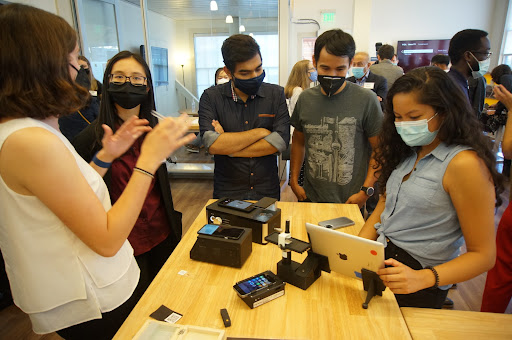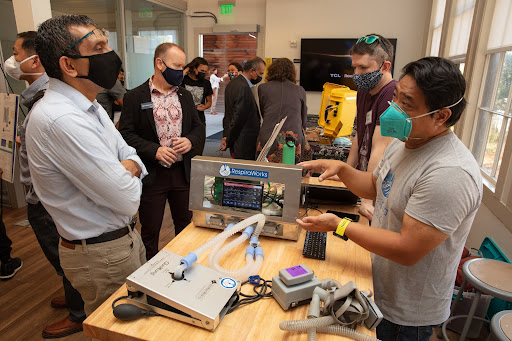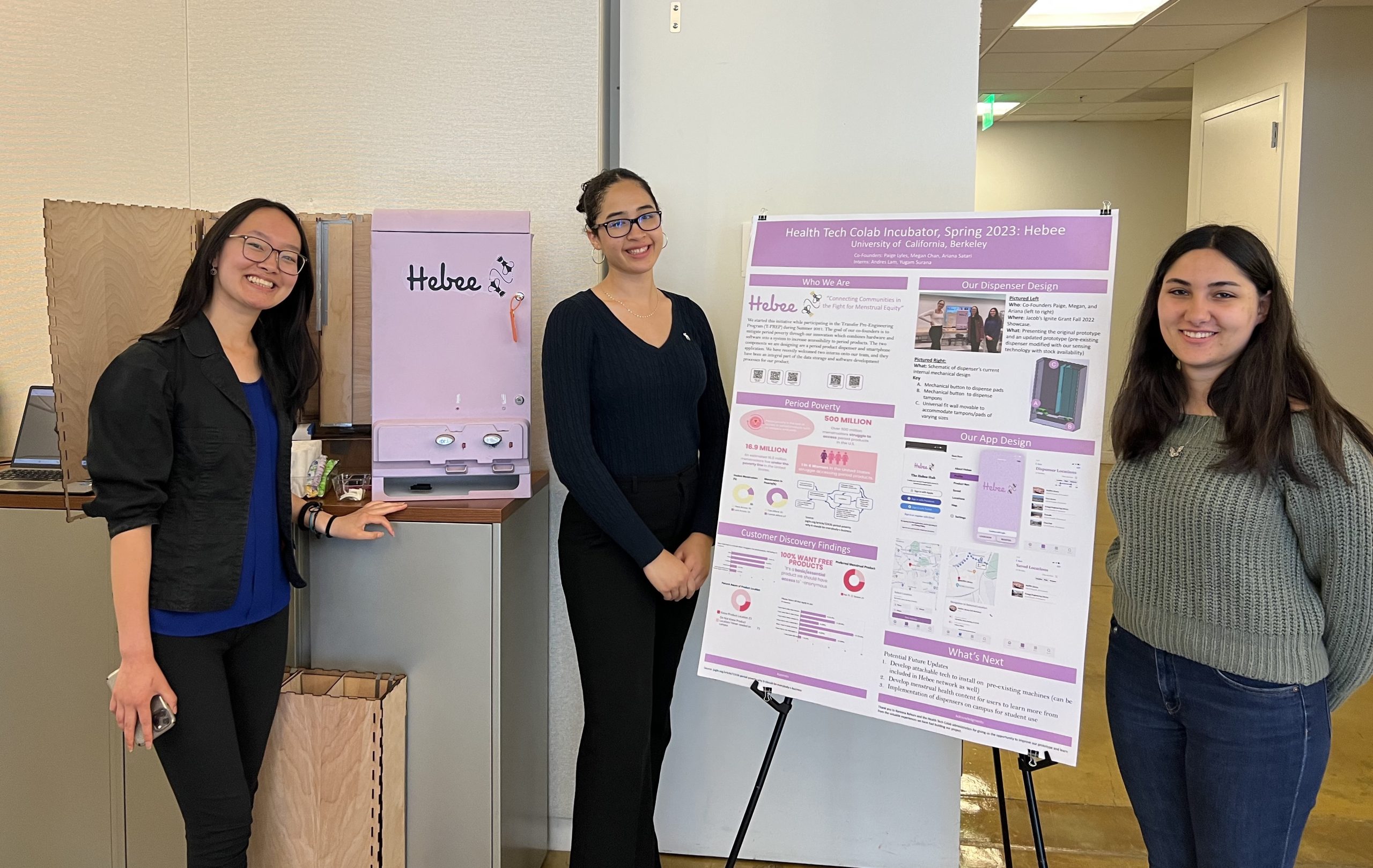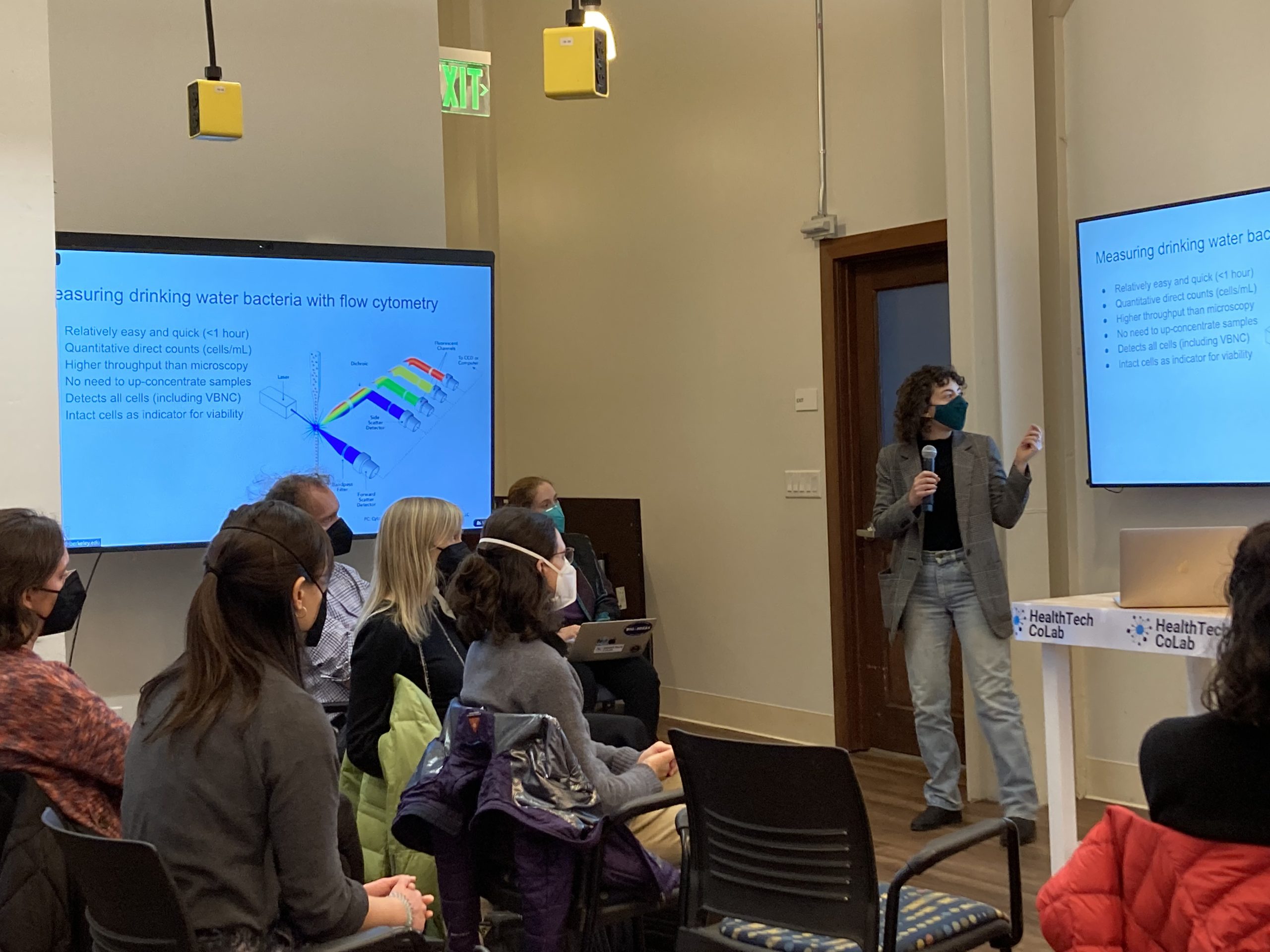The Health Technologies Collaborative Laboratory, a brand-new collaboration space to advance the development of medical devices to facilitate better healthcare and close the data and information gaps between innovators and industry, opened its doors last month in Blum Hall’s historic Naval Architecture Building with a launch event on Sept. 23 for a masked-up group of supporters, industry representatives, and campus VIPs.
Housed by the Blum Center for Developing Economies, the HealthTech CoLab will be unique among the many accelerators and incubators at Berkeley and around the Bay Area. While those programs have launched Berkeley students’ and alumni’s ideas — from smart power grids to new forms of plant-based meat — into the laps of VC firms and toward adoption, less profitable innovations are often left without a pipeline to viability — including many tech innovations focused on improving lives in low-resource regions.

“That’s certainly the case with many global health technologies that are being developed,” said Dan Fletcher, a professor of bioengineering and the Blum Center’s associate director of research. “They’re not something that a VC is looking to fund right now. How do we support those projects that have the potential to really transform lives but aren’t the ones that are being sought after by people with money?”
Enter Fletcher’s brainchild, the HealthTech CoLab.
In addition to a virtual and in-person space for undergraduate, graduate, and faculty teams to harness their human experiences, trade stories, and start dialogues, the CoLab will provide space for student teams, host workshops and talks, and be a place for teams and industry to connect and share each other’s know-how.
“Having an impact on health requires input from a lot of directions — from clinicians, from technologists, from patients, from healthcare providers,” said Fletcher. “It’s such a complex problem that I think we need a space where we can focus attention on that collaboration and not just the technology development.”
The need for this kind of space, unconstrained by profit-first notions of success, was made all the more pressing by the pandemic, which revealed serious inadequacies in healthcare systems — from delays in receiving Covid-19 test results to difficulties even accessing quality care. “It makes this an exciting and urgent time to try and change that,” Fletcher said. “There is a dire need for expanding access to quality healthcare.”
“The CoLab will be a hub of cross-pollination within and beyond campus,” said CoLab Manager Karenna Rehorn. “Great innovation doesn’t happen in a silo, and developing a medical device that truly addresses a pressing need in healthcare should incorporate the perspectives of those it’s intended to benefit as well as those who know how to bring the initial idea into the field.”
Once Fletcher and crew had the vision in hand, a spate of supporters also keen on changing the way healthcare is delivered stepped in to get the lab off the ground, including the Harvey and Leslie Wagner Foundation, Mitsuru and Lucinda Igarashi, former Vodafone CEO and Blum Center trustee Arun Sarin, and the CoLab’s first corporate partner, HCL Technologies.

Last month, the CoLab was officially introduced in a grand-opening ceremony with balloons, HealthTech CoLab merch, and, of course, CoLab face masks. On display or being demoed during the opening were social tech innovations of the sort that will eventually develop in the CoLab: We Care Solar, KovaDx, RespiraWorks, CellScope, and Sal-Patch — most of which originated at UC Berkeley, many through the Big Ideas Contest, a UC-wide innovation ecosystem, also housed at Berkeley’s Blum Center, that provides training, networks, recognition, and funding to interdisciplinary teams of students with transformative solutions to real-world problems.
“The HealthTech CoLab will help upcoming Big Ideas health projects by offering access to everything from industry feedback to the space and resources needed to further their social ventures to the point where they know they have some traction,” said Big Ideas Director Phillip Denny.
The 3,000-square-foot lab is home to a new conference room and small meeting room with video-conferencing systems. The main space hosts electrified work tables, A/V capabilities, and lockers for teams. The set-up allows the CoLab to seamlessly transition between, say, several in-person team meetings and a virtual symposium.
“What astonished the Dean’s Office was how quickly this came together,” recalled Karl van Bibber, professor of nuclear engineering and the college’s executive associate dean, at last month’s opening. “When I got the email that said, ‘Could you come here? We’re having the opening,’ I said, ‘Already?’”
Eight inaugural teams will be selected later this fall semester for up to a year’s stay in the CoLab.
“The real work begins now,” said Fletcher. “The set up is done, but now the work of inspiring and organizing and encouraging student teams and faculty labs begins.”




